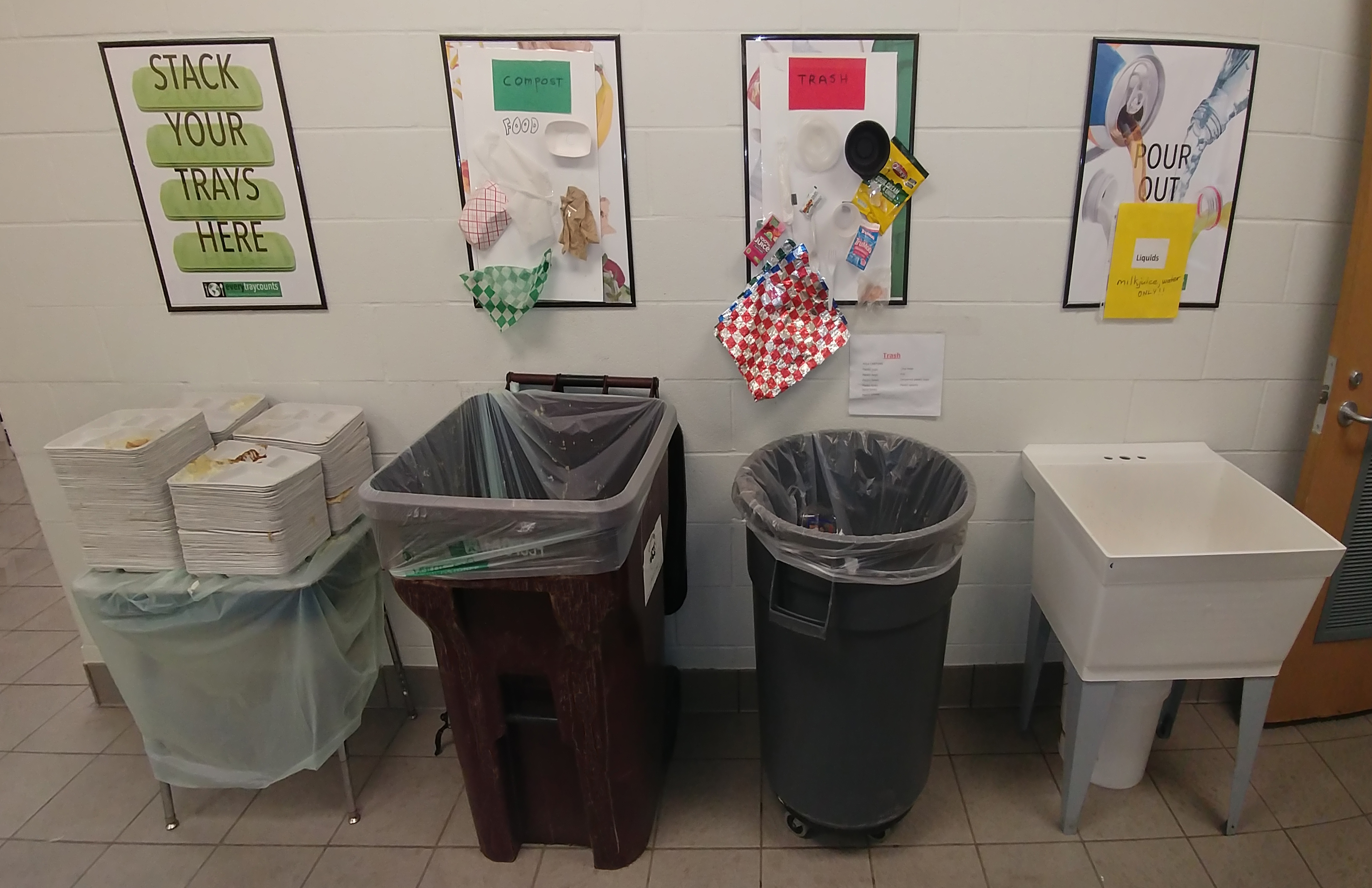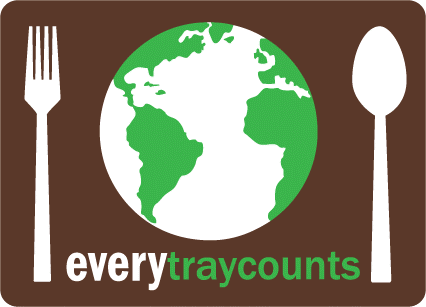EVERY TRAY COUNTS
Thank you for your interest in Every Tray Counts!
The organization is currently transitioning to become a state program under the North Carolina Department of Environmental Quality.
The Recycling and Materials Management Section (RMMS) will relaunch the program in 2024. Thank you for your patience during this time. For more information and to be kept in the loop about this transition please visit our contact page!
How to use the School Kit
To fulfill our promise of working with communities throughout North Carolina, Every Tray Counts strives to make the issues surrounding environmental education, cost shifting and sustainability easy to unravel. The school kit is a road map that demystifies issues relating to food waste, composting and tray options in the school lunchroom. It also moves the issues from the lunchroom to the classroom to the world around you.
The school kit is divided into several parts for ease of use. Each section can be used on its own for a specific purpose, or can be used as a whole.
 The Guide offers four options to help you determine your barriers and capabilities in order to find the best possible route to a sustainable lunchroom. Once you choose one of our programs, go to the Forms section under Our Four Programs and look at the Start Up form. All four programs use this form. Identify your program and print the remaining forms that you will need.
The Guide offers four options to help you determine your barriers and capabilities in order to find the best possible route to a sustainable lunchroom. Once you choose one of our programs, go to the Forms section under Our Four Programs and look at the Start Up form. All four programs use this form. Identify your program and print the remaining forms that you will need.- The Program Forms: Some of the forms are checklists that help you launch your day-to-day operations. Some are to be filled out on an ongoing basis. Forms also include tips on economic feasibility and cost shifting that show you how to save money by diverting compostable waste. When completed, these forms will give you a comprehensive look at your school situation. These are the only forms that you will need for the first three programs. If you choose program 4, the Full Pilot Program, you will need the forms and supplies for the lunchroom. In this one case, go to lunchroom operations:
- Posters were designed to be installed above the bins in the lunchline. However, they are also available on their own.
- Educational Resources includes Classroom lesson plans, Power Point Presentations, Videos, and our Favorite Sustainability Book List that grow your students’ understanding of the advantages of composting, and that spotlight issues about a sustainable lunchroom.
- On our website, you will find More Forms and Information that include flyers, fact sheets, fact sheets and other pertinent forms as well as links to Grants and Organizations that help you to develop statewide connections to groups and agencies working in the area of environmental education, sustainability and fiscal responsibility.
We have assembled the school kit to grow awareness of the need for a new approach to the school lunchroom. Long term success will be sustained by reducing tonnage going to landfills, closing the waste to use cycle by turning current waste products into usable material (compost), and instilling student awareness and life-long interest in minimizing negative environmental impact.
